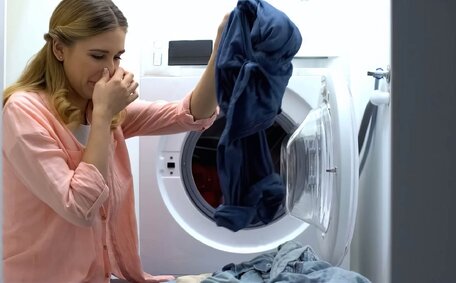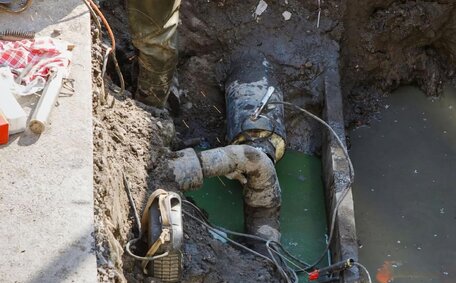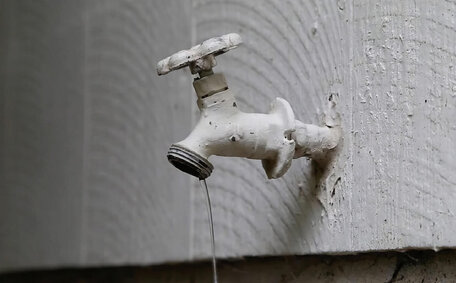Understanding Hot Water System Maintenance
Regular hot water heater maintenance is crucial to ensure the longevity, efficiency, and safety of your hot water heater. Quakers Hill Plumbing offers professional hot water maintenance services across Quakers Hill and wider Sydney.
With over 10 years of experience, we understand the intricacies of different hot water systems, whether it’s a storage tank, instantaneous, or heat pump unit. Our fully licensed plumbers conduct thorough inspections, anode rod replacements, and other essential maintenance.
Our preventative maintenance includes meticulous care for your systems, such as:
- Check water temperature and ensure the water pressure can meet system requirements
- Inspect the anode rod and replace if corroded
- Flush the tank and drain line to remove mineral sediment
- Test the relief valve
- Examine gas valves and pipework (for gas systems)
- Ensure electrical connections are tight (for electric systems)
- Identify any leaks or potential issues your system may be facing
Perform these maintenance tasks regularly, ideally biannually, to pre-empt issues and maintain your hot water system’s performance. As well as hot water systems, we offer a full suite of residential and commercial your plumbing services in Quakers Hill. Contact us for precise and professional plumbing assistance in Quakers Hill.
Types of hot water systems and their expected lifespans
There are several common types of hot water systems used in homes:
Electric Storage Tank
Electric water heaters with storage tanks consist of an insulated tank that heats water using one or two electric heating elements. They have an expected lifespan of 8-12 years.
Gas Storage Tank
Gas storage tank systems use natural gas or LPG to heat the water in an insulated tank. They typically last 10-15 years.
Tankless/Instantaneous
Tankless or instantaneous water heating units heat water on demand without a storage tank. Need to know about hot water units and their longevity? Gas tankless units last 15-20 years, electric tankless 10-15 years.
Heat Pump
Heat pump systems typically have a lifespan of 10-15 years. Heat pump systems use air as a source to heat water, boasting a durability of 10-15 years.
If you’re considering an upgrade, check the data plate on your current system for details like model and serial number.
Electric
Electric hot water systems
Electric hot water systems use one or two electric heating elements to heat water stored in an insulated tank. Although simple in design, these systems may incur higher operating expenses.
The expected lifespan of an electric storage tank hot water system is around 8 to 12 years, which a plumber can help extend with regular maintenance.
Licenced professionals should conduct an annual plumbing inspection on electric systems to check for any potential problems. This helps identify issues early before they become major problems. The plumber will also check your heating elements, replace the anode rod if corroded, flush sediment from the tank, and test the temperature/pressure relief valve.
Replacing heating elements or thermostats may be needed over time. Signs include a lack of hot water, slow recovery, and leaks. Replacing the crucial anode rod and servicing the temperature relief valve, every 3-5 years or when necessary, are critical for your tank’s longevity.
Proper insulation is a crucial factor in maintaining the efficiency of electric systems. New hot water tank insulation can be installed.
Keeping the tank free of sediment buildup through flushing also promotes efficiency.
While electric water heaters can be generally reliable, servicing your unit annually optimises performance and longevity. At the first indication of any issues, contact your service agent or plumber to promptly identify and rectify the problem.
Gas
Gas hot water systems
Gas water heater systems use natural gas or LPG to heat water stored in an insulated tank. A gas burner is connected to the power supply or gas supply and ignites to heat the water.
Gas hot water heaters, which can last an average of 10-15 years, require regular servicing to achieve their full lifespan.
We suggest having a licenced gas plumber inspect gas hot water systems annually. They will check the gas valves, pipework and connections for leaks or damage. The burner operation will also be tested.
The anode rod will be inspected and replaced if corroded, to protect the tank from rust. Deciding to flush your water tank contents is instrumental in clearing hard water sediment, Ignoring this can lead to inefficiency and malfunctions.
Prompt maintenance, such as cleaning the pilot assembly and thermocouple in case of ignition issues, is essential. Additionally, annual testing of the temperature and pressure relief valve is essential.
Gas systems are advantageous due to their rapid heating and recovery, ensuring a consistent hot water supply. But increased efficiency also means that with regular servicing, you could enjoy more hot water without a wait. This keeps the system performing safely and effectively for as long as possible.
If you notice any reduction in hot water supply, strange smells, or think your gas hot water system needs maintenance, contact a licenced professional plumber promptly.
Solar
Solar hot water systems
Solar water heating units use solar thermal collectors to efficiently heat water. Roof-mounted panels capture the sun’s heat, transferring it to water in the system.
With meticulous care to avoid any thermal loss, we ensure that this pre-heated water flows into the unit’s insulated storage tank efficiently. Here, it can be further heated by electricity or gas if needed to ensure
Maintenance needs are minimal but include:
- Checking the solar collector panels annually for damage or debris
- Inspecting pipes and valves for leaks
- Replacing pumps or controllers if faulty
- Checking insulation and replacing if degraded
- Flushing the tank to remove sediment
- Testing the temperature and pressure relief valves
Periodic inspections are critical in maintaining your solar water system’s optimal performance throughout its lifespan. This allows you to employ energy saving tips in your routine, enjoying reduced energy bills for longer by utilising the free, renewable power of the sun.
For issues with any water heater, including solar models, promptly contact our licensed experts at Quakers Hill Plumbing.
Signs that your hot water system needs servicing
There are several signs that indicate your hot water system may be due for maintenance or repairs:
- Changes in water temperature: If you notice fluctuations in hot water temperature, from very hot to lukewarm, it likely needs servicing. This could indicate issues like a faulty thermostat or heating element.
- Water leak: Any water leaks from the hot water tank, valves or pipe connections must be resolved promptly by a plumber to prevent water damage.
- Strange noises: Clicking, rumbling or banging noises can signify sediment buildup or failing components like heating elements.
- Discoloured water: Rusty, brownish or dirty looking water points to corroded interior tank walls and the need for an anode rod replacement.
- Reduced hot water flow: If you aren’t getting sufficient hot water, your system may be operating inefficiently due to age or the need for maintenance.
Additional signs include an overflowing pressure relief valve, cloudy/smelly water, high energy bills and slow hot water recovery times after use.
If you notice any of these warning signs, contact our team of licenced plumbers at Quakers Hill Plumbing. We can troubleshoot the issue and recommend the necessary repairs or maintenance.
Preventative servicing every 6-12 months can optimise hot water system performance, ensuring your water remains at optimum temperature and quality.
Benefits of regular hot water system inspections and maintenance
Regular hot water system maintenance offers multiple benefits:
- Prevents sediment buildup - Flushing the tank removes silt and mineral deposits that can accumulate over time, affecting efficiency.
- Improves lifespan - Routine servicing identifies and resolves minor faults before they become major repairs, extending the system’s longevity.
- Enhances efficiency - Well maintained systems operate more efficiently, saving energy and lowering costs.
- Avoids expensive repairs - Identifying and fixing problems early on avoids costly emergency callouts and repairs down the track.
- Ensures safety - Checking components like gas valves, electrical connections and the relief valve prevents potential hazards.
- Provides peace mind - Knowing your system is in good working condition instils confidence in its dependability.
Investing in regular maintenance is crucial to minimise the chances of experiencing plumbing issues and to ensure the maximised lifespan of your hot water unit. Our professional and experienced plumbers provide exceptional service for optimal system performance.
Contact Quakers Hill Plumbing today to learn more about our hot water system maintenance plans.
Prevents sediment buildup - Flushing the tank removes silt and mineral deposits that can accumulate over time, affecting efficiency.Improves lifespan - Routine servicing identifies and resolves minor faults before they become major repairs, extending the system’s longevity.Enhances efficiency - Well maintained systems operate more efficiently, saving energy and lowering costs.Avoids expensive repairs - Identifying and fixing problems early on avoids costly emergency callouts and repairs down the track.Recommended Inspection Frequencies for Hot Water Systems
Ensure your hot water system operates safely and efficiently by having regular inspections by a qualified plumber. Here are the general recommendations:
Residential hot water systems
For residential electric, gas, and solar systems, a water heater inspection is recommended annually. Annual check-ups will identify any issues before they escalate or cause system failures.
Commercial/industrial hot water systems
Commercial and industrial hot water systems benefit from biannual inspections to counteract accelerated wear and maintain performance.
Adhering to these recommended inspection frequencies ensures well-maintained systems for peace of mind. Preventative maintenance enhances efficiency and longevity. At the first sign of any problems, contact our team at Quakers Hill Plumbing for prompt repairs.
Every 6 months for residential systems
We recommend a thorough inspection every six months for residential hot water systems, rather than only annually.
During these biannual check-ups, our licensed plumber team arrives to thoroughly inspect the entire system, inside and out. Inspections will cover valves, anode rods, electrical connections, thermostats, insulation, and pressure/temperature relief valves, including tank flushing.
Catching small problems early prevents sediment build up, corrosion, leaks and heating failures down the track. It also enhances efficiency, so you enjoy lower energy bills.
We understand how important reliable hot water is for your home. Our customised maintenance plans, offered every six months, ensure year-round safe and efficient operation of your system.
Contact our team at Quakers Hill Plumbing to learn more about our comprehensive 6 monthly hot water system maintenance packages.
Annually for commercial/industrial systems
For commercial and industrial water systems, plumbing maintenance and an annual inspection is recommended. The larger scale and higher usage in commercial settings means these systems should be checked yearly by professional plumbing services to optimise performance.
An inspection entails a comprehensive system review by our licensed plumbers as part of the annual maintenance routine. This includes:
- Testing all electrical wiring and connections
- Inspecting plumbing valves and pipework
- Checking the thermostat, heating elements, and your pipes
- Replacing the anode rod if corroded
- Flushing sediment from the tank
- Examining the temperature/pressure relief valve
Commercial hot water systems can work hard to deliver constant hot water supply. Annual servicing helps keep them running safely and efficiently. It prevents breakdowns and repairs that lead to disruptive hot water outages.
Investing in preventative maintenance is cost-effective for businesses in the long run. At Quakers Hill Plumbing, we offer tailored annual hot water system maintenance plans to suit commercial needs.
What to look for during inspections
A thorough hot water system inspection by plumbers includes checks of several vital components:
- Anode rod - The anode rod protects the interior of the tank from corrosion. It should be replaced every 5 years or when severely corroded.
- Heating elements - Electric hot water systems have heating elements that can wear out over time. Any corrosion or damage needs repairing.
- Pressure relief valve - The T&P valve should be tested annually, pivotal to which is the easing lever to ensure it’s not stuck shut.
- Tank - Visually inspect your tank’s exterior for corrosion, leaks, or tree roots that may infringe on your property. Flush sediment to prevent buildup.
- Thermostats - Faulty thermostats that malfunction can lead to water scalding or a lack of hot water. Test thermostat accuracy.
- Insulation - Check any exterior insulation for degradation. Ensure connections are tight.
- Gas valves - For gas hot water systems, check gas valves and pipes for any leaks indicating damage.
Inspections allow plumbers to thoroughly examine all components of a hot water system. Preventative maintenance prevents issues before they arise and keeps your hot water flowing reliably.
Consequences of neglecting inspections and maintenance
Neglecting regular inspections and maintenance of your hot water system can lead to various issues that affect pipes and efficiency:
- Reduced efficiency - Scale buildup and sediment in the tank lowers heating efficiency, costing more in energy bills.
- Shortened lifespan - Lack of maintenance accelerates wear and tear, causing premature breakdowns.
- System failures - Undetected faults like corroded pipes or faulty valves can lead to complete system failure.
- Safety hazards - Issues like gas leaks or faulty electrical wiring can become dangerous without routine inspections.
- Water damage - Unnoticed leaks can result in flooding, mould and water stained ceilings/walls.
- Disruptions - Breakdowns mean unexpected interruptions, including cold water showers and hot water outages.
- Expensive repairs - Leaving problems unchecked leads to expensive emergency callouts instead of minor maintenance.
Don’t wait until you have no hot water or a serious issue before calling a plumber. Proactive maintenance by a skilled plumbing expert can fend off potential problems. Investing in 6-12 monthly inspections gives you peace of mind when need arises to ensure your system is operating safely and efficiently.
Contact us today to learn about our comprehensive hot water system maintenance plans. Catching small issues early saves money on repairs down the track.
Conclusion and call to action
Regular maintenance is vital for maintaining your plumbing system, extending its lifespan, enhancing efficiency, and thus reducing costs by ensuring a continuous hot water supply. Inspections by a qualified plumber every 6-12 months can identify issues early before they become major problems.
Clients at Quakers Hill Plumbing value the detail-oriented and tailored service our licensed technicians deliver. We check all components and flush sediment to enhance performance.
Preventative maintenance mitigates future costly repairs and guarantees the reliability and safety of your hot water system.
For your next hot water inspection or to discover more about our maintenance plans, contact Quakers Hill Plumbing on 1300 349 338 or email jobs@quakershillplumbingservices.com.au.






